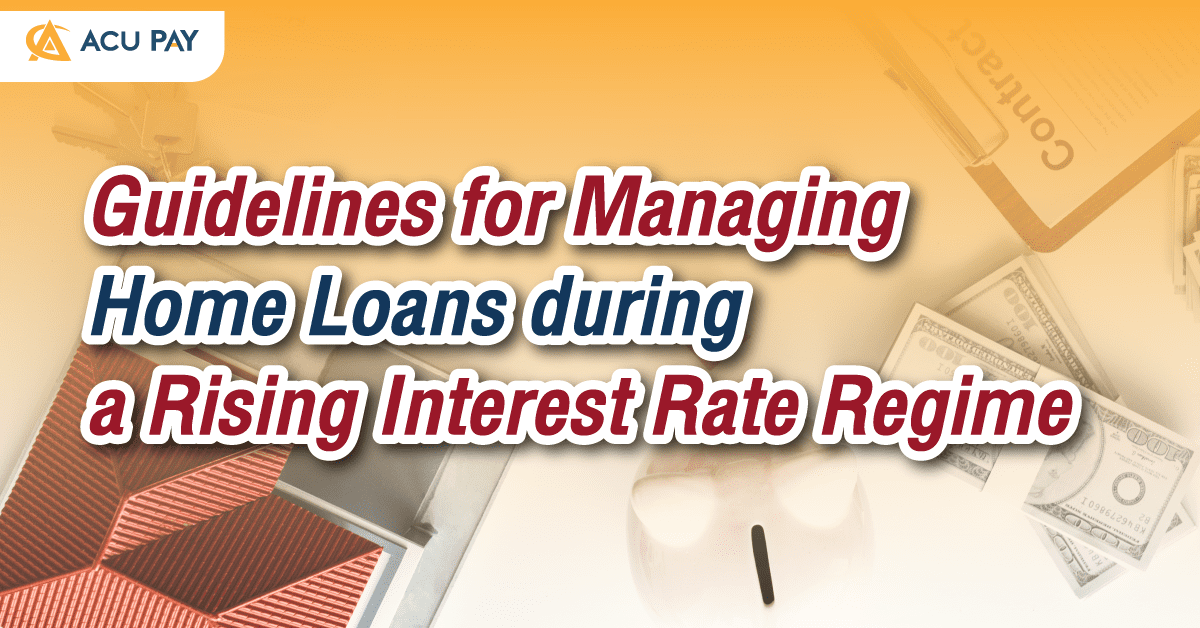

How does raising interest affect debt or home loans? Will the home loan repayment be the same, longer, or more expensive? If so, how do we deal with it?
in the home loan industry, there will be 2 groups of people who pay interest on loans that will be affected differently.
This group of debtors will not be affected much. because the loan interest rate is still charged according to the contract. Most financial institutions will set a fixed rate at the beginning (for example, a fixed interest rate of 3% for the first 3 years) and then adjust it to a floating rate. This gives you enough time to adjust and find favorable loan terms before the contracted interest rate changes to the floating interest rate range.

This group is affected when the interest rate in the contract changes to a floating rate. because the installment will have more interest every month. If you were to pay the same number of installments every month when the interest rate rose, there would be less money left to amortize the principal.

for anyone who wants to reduce the burden of loan interest or pay off all home debt faster. I would like to invite you to try it in the following way:
We may start by reducing unnecessary expenses like the lottery or coffee. If it can be reduced, for example, from buying every day to once a week, or reducing the amount paid. There may still be a large sum of money left that may surprise you. (Try calculating the approximate amount in the “Where Did the Money Go?” program). Or you may also be looking for additional income, such as selling online or selling clothes.
Negotiating interest reductions with creditors is something we can and should do. Most home debts will have 2 interest rate periods, which will have low interest in the first period to motivate customers. For example, a fixed interest rate of 3% for the first 3 years, and the second period is a floating interest rate loan, which is often more expensive than the first year, such as MRR[1] until the end of the contract term. When we pay for a period of time until near the period when the contract loan interest rate will change to a floating rate. We can also go to negotiate with creditors to request a reduction in interest rates, such as adjusting to a fixed loan interest rate that is lower than a floating interest rate. This will help keep the interest burden not higher for a period of time. It also helps to pay off debt faster than paying under contracts without asking for a reduction. So if you have a home loan, don’t wait. Hurry up to see the contract that it’s nearing the end of the interest promotion period. Or has it been adjusted or not? If it’s almost time, don’t forget to file a request for a lower interest rate negotiation. It is recommended that you should prepare at least 1 month before the loan interest rate in the contract is adjusted to floating. We can ask for more information at the financial institutions we use. What documents are required to support the submission of a case to a financial institution for consideration?
Next is refinance to other financial institutions that offer lower interest rates than the financial institutions that we use. However, before refinancing, think about the hidden costs that are worth refinancing or not, such as prepayment fees, securities appraisal fees, and mortgage fees. If anyone wants to refinance and is looking for better conditions, You can find comparative information for decision-making at the “Product Comparison Program.”
Negotiating interest reductions and refinancing will help us save on interest payments. and pay more principal each month. This will allow us to pay off debt faster as well.
It can be seen that, while rising interest rates may have an impact on our home loan burden, but if managed well, home loans are not a serious problem. Become an asset and a warm place for everyone in the family for a long time.

Reference: bot